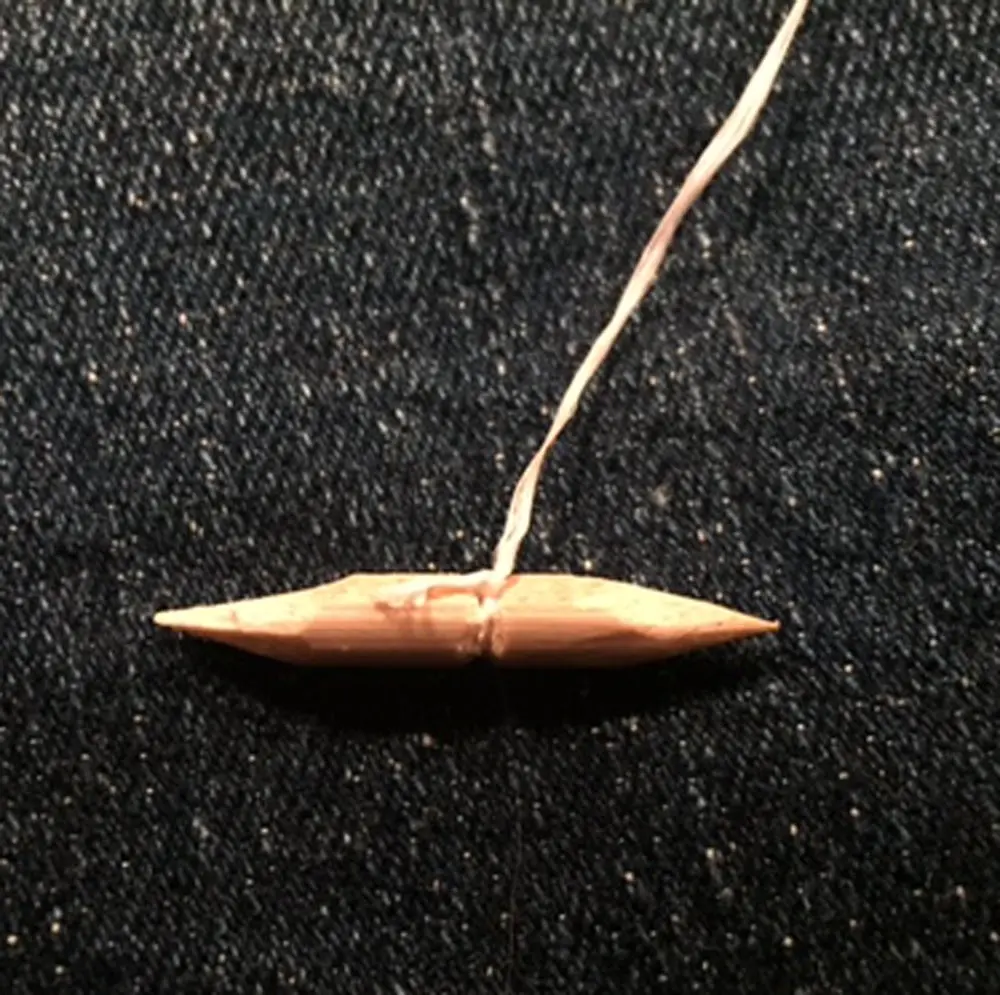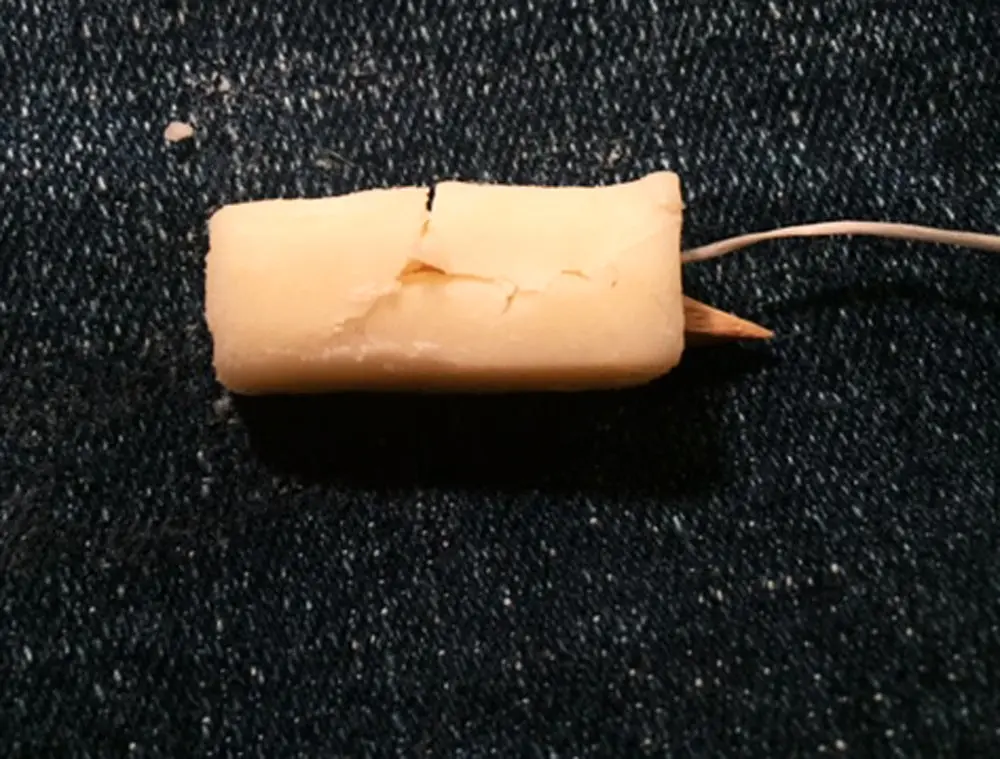
Gorge Hook
A DIY hook that can be a lifesaver in a pinch.
The gorge hook is a simple yet highly effective primitive tool that works as well today as it did a thousand years ago. And in a survival scenario, it can be a real lifesaver.
The basic premise is to sharpen a piece of wood or bone that can lodge into the gullet or soft innards of a fish, effectively hooking it without a barb. Obviously, this is not a catch-and-release practice, but it’s an effective way to catch fish when obtaining protein is the primary objective. Panfish, catfish, trout, and bass will suck in bait with gusto, only to find themselves stuck when the gorge hook rotates sideways and engages. Fixed set lines work well with gorge hooks, but you can fish them actively, too.
To make a gorge hook is simple:
1. First, locate a thin, rigid piece of bone, horn, hardwood, or cactus spine. Then cut it to an inch or so in length.
2. Sharpen both ends to a point and carve a shallow groove into the center, creating a recess in which the fishing line can seat. Tie monofilament, dental floss, or cordage to the hook—whatever string-like material you can find in a pinch, really—and fix the knot firmly into the carved groove.

Gorge Hook
Try to keep the hook pointing up and down.
3. Finally, affix live bait (night crawler, grasshopper, crawfish) or a scrap of food to the hook in whatever manner possible. This is best accomplished by spearing the hook fully into the bait, so that it remains parallel with the line, pointing up and down. Then, ensure that your line is long enough to get a good set, and secure the non-baited end to a stick, branch, or anchor. Set the baited hook into the most promising piece of water you can find and wait for a fish to bite. Be certain to feed slack to a feeding fish until the bait has been completely eaten, thus ensuring that the hook will pivot and lodge, guaranteeing your meal.
![Field & Stream [dev]](https://images.ctfassets.net/fbkgl98xrr9f/1GnddAVcyeew2hQvUmrFpw/e4ca91baa53a1ecd66f76b1ef472932b/mob-logo.svg)




